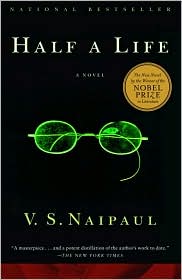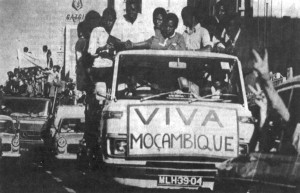Note: V. S. Naipaul was WINNER of the Nobel Prize for Literature in 2001.
A wandering narrative of a displaced soul
V. S. Naip aul’s Nobel Prize for Literature celebrates the long and illustrious career of a writer of extraordinary narrative gifts, amply demonstrated in this novel. The reader can choose any page of the book at random and be stunned by a graceful turn of phrase, a unique observation, the pleasing alternation of starkly simple and elegantly complex sentences, or a perceptive comment presented with grace. Though it is relatively short, it is dense in its thematic development, tracing the peripatetic life of Willie Somerset Chandran across three continents, and from his teen years to his early 40’s, as he attempts to fit in, to be part of some mainstream.
aul’s Nobel Prize for Literature celebrates the long and illustrious career of a writer of extraordinary narrative gifts, amply demonstrated in this novel. The reader can choose any page of the book at random and be stunned by a graceful turn of phrase, a unique observation, the pleasing alternation of starkly simple and elegantly complex sentences, or a perceptive comment presented with grace. Though it is relatively short, it is dense in its thematic development, tracing the peripatetic life of Willie Somerset Chandran across three continents, and from his teen years to his early 40’s, as he attempts to fit in, to be part of some mainstream.

The offspring of a Brahmin functionary in a maharajah’s court and an Untouchable woman, someone to whom his father was drawn temporarily in an effort to emulate the sacrifice of Gandhi, Willie belongs to neither group, an outsider even to the lowest caste. He escapes to England, where he remains an outsider for his schooling and an early career as a writer, eventually fleeing again with Ana, a Portuguese-African woman, to her farm in Mozambique, where he lives for eighteen years. These are eighteen years in which he remains alienated, however, living half a life in a half-developed country to which he, apparently, is only half-committed.
The political and raci al tensions of the novel–the bloody independence movement in India, the Notting Hill race riots in London, and the guerrilla movement for independence in Mozambique–are vivid and dramatic, paralleling Willie’s personal conflicts. His early sexual encounters, which might have brought him some sense of belonging, are unfulfilling, however, laden with racial overtones and additional tensions, and described by Naipaul in startingly passionless and unerotic prose. And while the novel has a good deal of irony and some satire, it has no sense of lighthearted fun. Willie’s need to belong is so intense it overpowers everything else. Though the reader may feel sympathy for him, his self-centeredness and lack of feeling for other alienated people, especially Ana, ultimately keep him at a distance him from everyone, including this reader.
al tensions of the novel–the bloody independence movement in India, the Notting Hill race riots in London, and the guerrilla movement for independence in Mozambique–are vivid and dramatic, paralleling Willie’s personal conflicts. His early sexual encounters, which might have brought him some sense of belonging, are unfulfilling, however, laden with racial overtones and additional tensions, and described by Naipaul in startingly passionless and unerotic prose. And while the novel has a good deal of irony and some satire, it has no sense of lighthearted fun. Willie’s need to belong is so intense it overpowers everything else. Though the reader may feel sympathy for him, his self-centeredness and lack of feeling for other alienated people, especially Ana, ultimately keep him at a distance him from everyone, including this reader.

Because Naipaul has mined the theme of displacement repeatedly in his novels and non-fiction, one cannot avoid wondering how much of this book is autobiographical. Though that probably shouldn’t matter, it is a distraction here. The book feels more like the nonfictional summing-up of a life, in which the reader is an objective observer, than a liberating fictional journey into a new world which the reader shares equally with the author.
Notes: The author’s photo by Sara Kurlwich appears on http://www.nytimes.com
The headline about the Notting Hill race riots comes from http://www.bbc.co.uk
The celebration of the success of the Mozambique independence movement may be seen here: http://formaementis.wordpress.com
